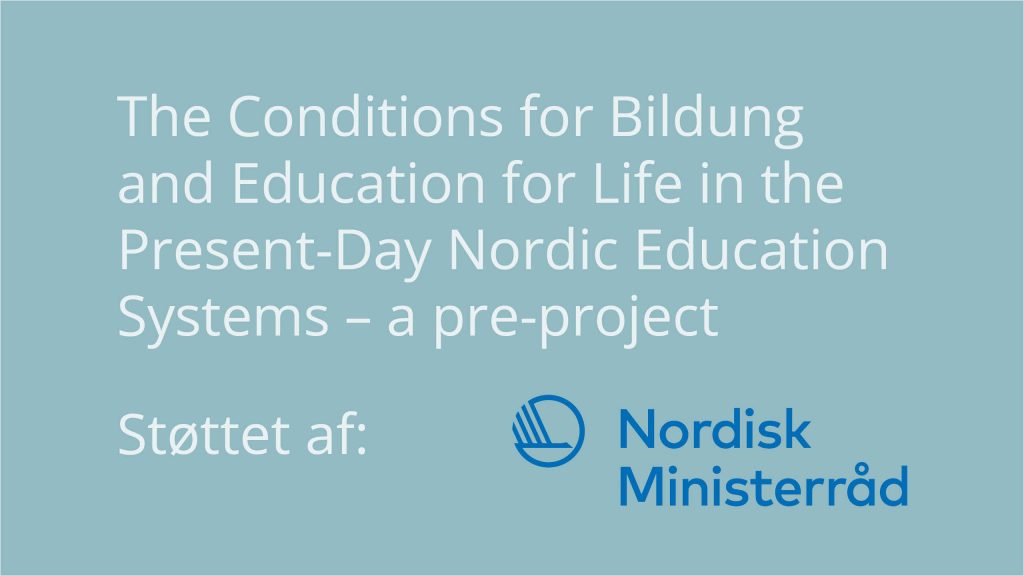Nordic Bildung Network / Nordiskt Sivistys Netverkið gathers educators and other bildung professionals, semi-professionals, and bildung volunteers in the Nordics.
The agenda will be two-fold: To strengthen bildung in the Nordics today, including strengthening the awareness about the Nordic bildung history and bildung tradition. And to share knowledge about Nordic bildung and bildung methods with educators and decision-makers around the globe.

So far, we have had one physical meeting in Helsinki in June 2024, where we discussed what kind of network this should be. For now, and until more people have joined, Nordic Bildung will take care of the practicalities, and Nordic Sivistys Netverkid will be a project-based network of bildung-dedicated professionals. Making Nordic Sivistys Netverkid a real organization with bylaws and a chance for you to volunteer as a board member of yet another association with its own paperwork is not in the pipeline until the members insist.
We, the initiators, Ludvig Claeson (NO), Lene Rachel Andersen (DK), Lauri Tuomi (FI), Olli-Pekka Heinonen (FI), and Kim Hjerrild (DK) hope you would like to be active on the creative side and contribute to defining the content of the network. For more info and inspiration, please read our Mission Statement below and join our online and live events.
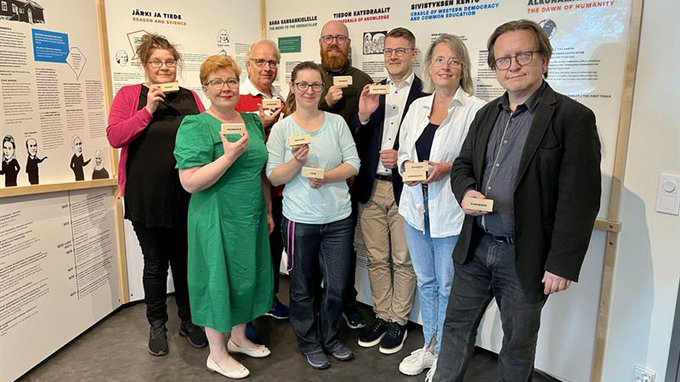
Marion Fields, Heidi Kinnunen, Harri Jokinen, Dora Hietavirta, Stian Juell, Lauri Tuomi, Lene Rachel Andersen, and Ludvig Claeson from Finland, Norway, and Denmark — plus Björn Wallen and Anna Ekström from Sweden who left before we took the picture — met in Helsinki at the KVS on June 13, 2024, for the first discussions about how to establish a Nordic bildung network.
Språket i Nordiskt Sivistys Netverkid kommer att bli en blandning mellan skandinaviska och engelska; most written communication will be in English.
The Future of Bildung in the Nordics
Online & Live, Winter & Spring 2024-2025
The Future of Bildung in the Nordics; facing local and global challenges
10 October, 15:00-17:00 CET
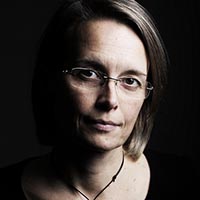
15:00-15:20 Velkommen!
Vem är Nordiskt Sivistys Netverkid och vad vill vi?
15:20-15:50 Varför bildning, varför framtiden och varför Norden?
Lene Rachel Andersen, DK, author of The Nordic Secret
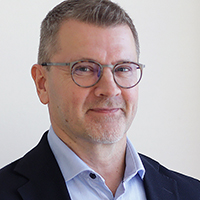
16:00-16:30 Sivistys in Suomi: Should we all have a year of sivistys?
Lauri Tuomi, FI, Secretary General of the The Lifelong Learning Foundation, Kansanvalistusseura, the KVS Foundation, and of the Finnish Year of Sivistys – Get Lauri’s slides as pdf
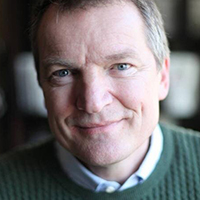
16:30-16:50 Update on The Great Nordic Bildung Survey
Not included in the video (sometimes you just have to show up…
16:50-17:00 Vinterns online program
och konferencen i Mars
Grundtvig eller Gangster?
– Kan dannelse / bildning forebygge bandekriminalitet?
28 November, 16:00-18:00 CET
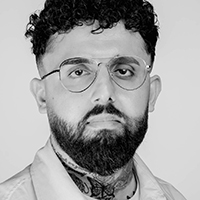
Yaqoub Ali, forfatter og ekspert i bandekriminalitet og radikalisering
Yaqoub er tidligere islamist og bandemedlem i Danmark, nu stærk fortaler for dannelse og Grundtvig, hvis vi skal forebygge, at store drenge rekrutteres til gäng/bander og religiøs fundamentalisme.
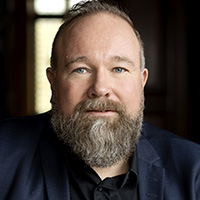
Från folkbildande raptivister till nihilistisk gangsterrap
Johan Söderman är professor i pedagogik, kommunikation och lärande och forskar i sambandet mellan hiphop och gängkultur.
Foto: Jonan Wingborg
Updates from the Network
Vært: Kim Hjerrild, Nordic Bildung
Episoden blev optaget på video og indeholder slides; af tekniske årsager har vi valgt kun at lægge lyden online.
Hvad er det særlige ved den nordiske tradition for dannelse og uddannelse?
Tre tidligere undervisningsministre diskuterer!
9 Januar, 16:00-18:00 CET
16:00-15:15 Velkommen!
16:15-17:45 Presentations, discussions, and more – på svenska, engelska och danska
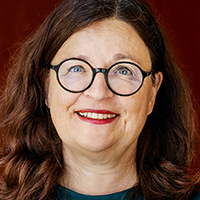
Anna Ekström, Utbildningsminister i Sverige 2019-2022
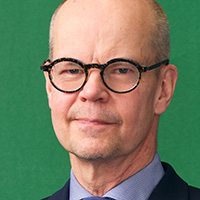
Olli-Pekka Heinonen, Minister of Education in Finland 1994-1999

Bertel Haarder, Undervisningsminister i Danmark 1982-1993 og 2005-2010
Photo: Johannes Jansson
photo has been cropped
17:45-18:00 Updates from the Network
Dansk og svensk grundskole – forskellige veje til samme mål?
Eller vil vi noget forskelligt med dannelse / bildning og myndiggørelse?
6 Februari, 16:00-18:00 CET
16:00-16:15 Velkommen!
16:15-17:45 Oplæg og diskussion
Språk: danska och svenska
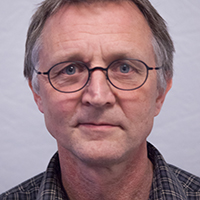
Anders Bondo Christensen
Formand for Danmarks Lærerforening under kampen om folkeskolen og lockouten af folkeskolelærerne i 2013
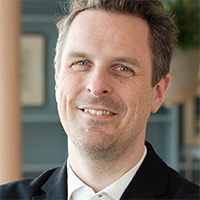
Pontus Bäckström
Samhällspolitisk chef, fil.dr., Verksamhetschef Profession och Utredning, Sveriges Lärare
foto: Felix Lideri
17:45-18:00 Updates from the Network
The Future of Bildung in the Nordics: Live at Nordiska Folkhögskolan 6-7 Mars
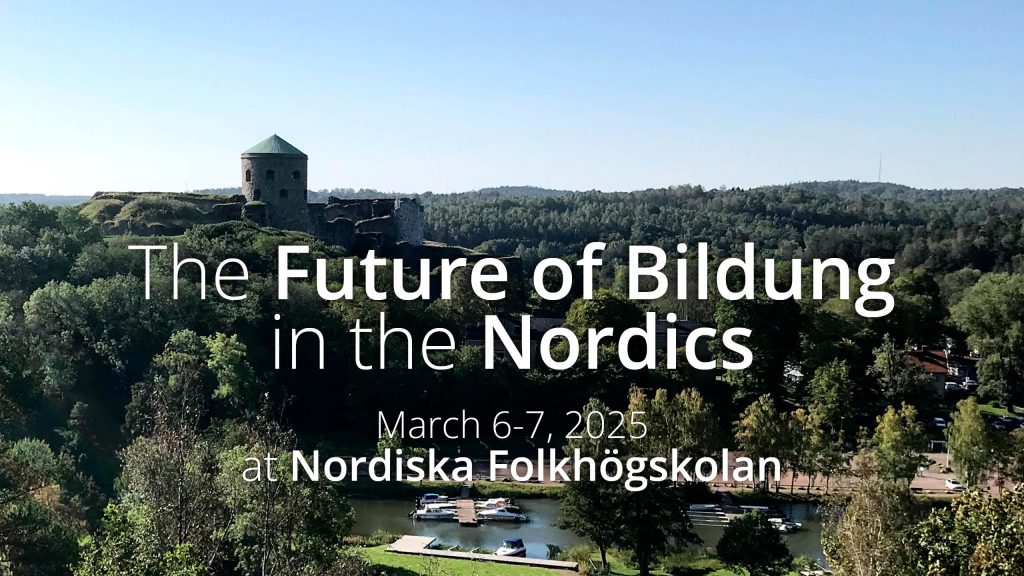
Our first major physical network event will be the conference The Future of Bildung in the Nordics at Nordiska Folkhögskolan in Kungälv March 6-7, 2025. For more information, please go here: https://www.globalbildung.net/nbn2025-the-future-of-bildung-in-the-nordics/ or send us an email at
The Conditions for Bildung and Education for Life in the Present-Day Nordic Education Systems – a pre-project
We have now concluded the pre-project and are ready to start planning the surveys based on our research. To read more about it click here or on the logo: https://www.nordicbildung.org/pre-project-completed/
We would like to thank the Nordic Council of Ministers for funding the pre-project.
Nordiskt Sivistys Netverkið Mission Statement
We are in the process of finding out what kind of network, organization, or platform the Nordic Bildung Network should be. The initiators Ludvig Claeson, Andres Lopez, Sturla Bjerkaker, Lauri Tuomi, Olli-Pekka Heinonen, Lene Rachel Andersen, and Kim Hjerrild, who wrote the first draft, have created a mission statement that sums up our current intentions:
For a bildung-oriented renewal of our education systems
The Nordic Bildung Network is created out of a shared belief that our schools and education systems increasingly struggle or fail to meet their original purpose: bildung and education for life and citizenship—and employment. The historical success of the Nordic countries relied on bildung and education that were deeper and more oriented towards agency, motivation, and identity building than what our current school systems provide. As we see it, we have failed to upgrade our approach to bildung and education to match the needs of the 21st century.
The demise of bildung and universal humanism as the fundamental ethos in education is part of the explanation for the current state of education. By letting the focus of our schools shift from seeing every pupil and every student as unique, each with different dispositions and potentials, to testing student performance according to predefined learning targets, we have undermined the normative core of our Nordic educational legacy.
The problems our schools and education systems are faced with today are multi-facetted and linked to generic causes:
- The well-being and mental health of our children and youth is steadily deteriorating, leading to poorer school attendance and risk of more and more young people being left without formal education and adequate life skills.
- Growing dissatisfaction, stress, and burnout among teachers, making recruitment and retention of qualified staff a major problem that limits the capacity of our schools and education systems to develop, adjust, and improve.
- Increased gaps in educational and life chances between youth of different socio-economic groups and socially segmented geographies, eroding the schools’ function as a factor for social cohesion, cultural openness, and democratic involvement.
- Societal acceleration – including the impact of the digital life-world of the new generations, AI, and the attention economy – creates a new context for the inter-generational transferal of knowledge and experience that we have not even started to address, much less understand.
- A sense of helplessness and ‘the End of the World as we know it’ as climate change, ecosystems’ breakdown, and the downfall of the Pax Americana become the general backdrop for the young generations.
We believe that we find ourselves between two worlds: between an old world that the planet and its people can no longer sustain and a new world of emerging major changes and uncertainties that we can barely grasp.
We see the foundations of bildung – the sense of meaning, of belonging and identity, and of personal purpose, competence, and capability – being weakened, if not eroded. More (formal) education will not fill out the void. The increase in and separation of disciplines and topics taught is both expensive and precarious, particularly in a world of increasing complexity. The need to rediscover and reinvigorate education as the source of culture and active citizenship is growing more and more evident.
With this network we wish to create a platform for and mobilize a common Nordic discussion about our schools and the role of bildung in the education of both young and old. We find it vital that we reflect upon and revitalize our Nordic educational heritage, which has been a decisive factor in creating the democratic culture and high levels of responsibility and trust in our societies.
We put forward five principles, drawn from Nordic pedagogical thinking and practice, to be debated, qualified, and developed. We firmly believe that bildung and normative principles like the ones proposed should be at the core of the reorientation and revitalization of our education systems.
Principles for a bildung-oriented renewal of our education systems:
1. Every pupil and every student, children and adults alike, is seen as a unique person in his or her own right, deserving to be educated by teachers who have the time, the mandate, and the qualifications to meet them in authentic, deep, and empathetic relations.
2. The purpose of our schools is first and foremost to educate for life, to strengthen each individual’s personal character, and to promote curiosity, love of learning, a sense of wonder and of belonging, and individual development as a whole person in the social context. This requires that we have an ongoing conversation about what it means and entails to be a human being in the world of today.
3. The curricula, didactics, and pedagogy of our schools and institutions should build on a permanent dialogue between the best evidence-based knowledge about personal and cognitive development and the experiences of the teaching community, with the practitioners in the schools and classrooms having the final say.
4. Better, deeper, and more widespread education is the only means we have if we are going to solve the poly-crisis we are facing, and to solve it in such a way that it will not threaten the social cohesion and the democracy of our countries and our continent. This will call for substantially enhancing investment in our education systems and in new arenas for teaching and learning. We should build a society of teachers and learners where all parts of society and all generations play a part.
5. Bildung and the development of life skills and citizen competences should be present and on offer in all trades, professions, and sectors of society. Knowing about nature, climate change, and ecosystems, learning how to cook healthy meals and run a household, trying out arts and crafts, feeling the power of the performing arts – all these areas of knowledge, practice, and experience should be seen as a universal curriculum; a pedagogical universe made accessible to and to be utilized by all corners of the education system when relevant and possible. This also requires that we acknowledge the trade-offs and have the courage to deprioritize subjects and goals that are less important for the overall purpose of our schools.
School originally meant ‘free time’, the time to flourish as a human being and to find meaning and purpose and yourself. School should be our common societal endeavor towards more meaningful lives for everybody.
Formålet med Nordic Bildung Network – det nordiske netværk for dannelse
Nordic Bildung Netværk – det nordisk netværk for dannelse – er skabt ud fra en fælles overbevisning om, at vores skoler og uddannelsessystemer i stigende grad kæmper med at opfylde deres oprindelige formål: At danne og uddanne den næste generation til myndighed og medborgerskab – og beskæftigelse.
De nordiske landes historiske succes var baseret på en dannelse og uddannelse, der var dybere og mere orienteret mod handlekraft, motivation og identitetsopbygning end det, vores nuværende skolesystemer tilbyder. Som vi ser det, har vi har vi ikke formået at opgradere vores tilgang til dannelse og uddannelse, så den matcher det 21. århundredes behov.
Nedprioriteringen af dannelse og universel humanisme som den grundlæggende etos i al undervisning er en del af forklaringen på uddannelsessystemets nuværende tilstand. Ved at lade det primære fokus i vores skoler skifte fra at se hver elev eller hver studerende som unik, hver med forskellige forudsætninger og potentialer, til at teste deres præstationer i henhold til foruddefinerede læringsmål, har vi undermineret de normer og værdier, som vores nordiske uddannelsesarv udspringer af.
De problemer, som vores skoler og uddannelsessystemer står over for i dag, har mange facetter og spiller sammen med nogle generelle udviklingstræk i vores samfund:
- Vores børns og unges trivsel og mentale sundhed forværres støt, hvilket fører til dårligere skoledeltagelse og risiko for, at flere og flere unge efterlades uden formel uddannelse og tilstrækkelige livsfærdigheder
- Voksende utilfredshed, stress og udbrændthed blandt lærere, hvilket gør rekruttering og fastholdelse af kvalificeret personale til et stort problem, der begrænser vores skolers og uddannelsessystemers evne til at udvikle, tilpasse og forbedre sig.
- Øgede forskelle i uddannelses- og livschancer mellem unge fra forskellige socioøkonomiske grupper og socialt segmenterede geografiske områder, hvilket udhuler skolernes funktion som en faktor for samhørighed, kulturel åbenhed og demokratisk engagement.
- Den samfundsmæssige acceleration – herunder indvirkningen af de nye generationers digitale livsverden, kunstig intelligens og opmærksomhedsøkonomien – skaber en ny kontekst for overførsel af viden og erfaring mellem generationer, som vi ikke forholder os nok til, endsige forstår.
- En følelse af hjælpeløshed og frygt for fremtiden i takt med, at klimaforandringer, økosystemernes sammenbrud, og Pax Americana’s afvikling bliver det generelle bagtæppe for de unge generationer.
Vi mener, at vi befinder os mellem to verdener: Mellem en gammel verden, som planeten og dens mennesker ikke længere kan holde til, og en ny verden med nye store forandringer og usikkerheder, som vi knap nok kan forstå.
Vi ser grundlaget for dannelse – følelsen af mening, af tilhørsforhold og identitet og af personligt formål, kompetence og evne – bliver svækket, hvis ikke udhulet. Mere (formel) uddannelse vil ikke udfylde tomrummet. Den stigning i og adskillelse af discipliner og emner, der undervises i, er både dyr og usikker, især i en verden af stigende kompleksitet. Behovet for at genopdage og genoplive uddannelse som kilde til kultur og aktivt medborgerskab bliver mere og mere tydeligt.
Med Nordic Bildung Network ønsker vi at skabe en platform for og mobilisere en fælles nordisk diskussion om vores skoler og dannelsens rolle i uddannelsen af både unge og ældre. Vi finder det afgørende, at vi reflekterer over og revitaliserer vores nordiske uddannelsesarv, som har været en afgørende faktor i skabelsen af den demokratiske kultur og det høje niveau af ansvar og tillid i vore samfund.
Vi foreslår som afsæt fem principper, som er hentet fra nordisk pædagogisk tænkning og praksis, og som skal debatteres, kvalificeres og udvikles. Vi er overbevist om, at dannelse og normative principper som de her foreslåede bør være kernen i en reorientering og revitalisering af vores uddannelsessystemer.
Principper for en dannelsesorienteret fornyelse af vores uddannelsessystemer:
- Hver elev og hver studerende, både børn og voksne, ses som unikke personer i egen ret, som fortjener at blive uddannet af lærere, der har tid, mandat og kvalifikationer til at møde dem i autentiske, dybe og empatiske relationer.
- Formålet med vores skoler er først og fremmest at uddanne til livet, at styrke den enkeltes personlige karakter og at fremme nysgerrighed, kærlighed til læring, en følelse af forundring og tilhørsforhold samt individuel udvikling som et helt menneske i en social sammenhæng. Dette kræver, at vi har en løbende samtale om, hvad det betyder og indebærer at være et menneske i verden af i dag.
- Læseplaner, didaktik og pædagogik i vores skoler og institutioner bør bygge på en permanent dialog mellem den bedste evidensbaserede viden om personlig og kognitiv udvikling og undervisernes erfaringer fra mødet med eleverne – hvor praktikerne i skolerne og klasseværelserne har det sidste ord.
- Bedre, dybere og mere udbredt uddannelse er det eneste middel, vi har, hvis vi skal løse den polykrise, vi står over for, og løse den på en sådan måde, at den ikke truer den sociale samhørighed og demokratiet i vores lande og på vores kontinent. Det vil kræve en væsentlig forøgelse af investeringerne i vores uddannelsessystemer og i nye arenaer for undervisning og læring. Vi bør opbygge et samfund af lærere og lærende, hvor alle dele af samfundet og alle generationer spiller en rolle.
- Udvikling af livsfærdigheder og demokratiske kompetencer bør være til stede og tilbydes i alle brancher, erhverv og sektorer i samfundet. At vide noget om naturen, klimaforandringer og økosystemer, at lære hvordan man laver sund mad og driver en husholdning, dykker ned i kunst og håndværk, føler kraften i scenekunsten – alle disse områder af viden, praksis og erfaring bør ses som et universelt pensum, et pædagogisk univers, der gøres tilgængeligt for og bruges af alle hjørner af uddannelsessystemet, når det er relevant og muligt. Det kræver også, at vi anerkender kompromiserne og har modet til at nedprioritere fag og mål, som er mindre vigtige for skolens overordnede formål.
Skole betød oprindeligt ‘fritid’, tiden til at blomstre som menneske og til at finde mening og formål og én selv. Skolen bør igen være vores fælles samfundsmæssige bestræbelse på at skabe et mere meningsfuldt liv for alle.
Kim Hjerrild, Jens Nedergaard, Lene Rachel Andersen, Nordic Bildung, Danmark
Lauri Tuomi, CEO, Kvs-säätiö, Kvs Foundation, Finland
Olli-Pekka Heinonen, Vice-Chair of the Board of Governors, Kvs-säätiö, Kvs Foundation, Finland
& Director General, International Baccalaureate Organization, Switzerland
Ludvig Claeson, Secretary General, Musikkens Studieforbund, Norge Sturla Bjerkaker, folk-bildung expert, Norge


